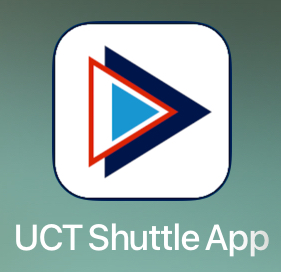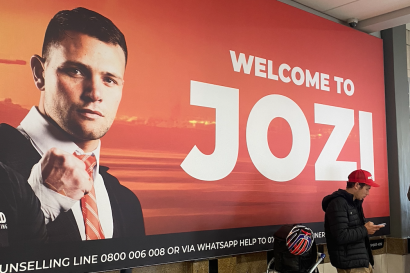Upon arrival to Cape Town, the IES Abroad center wasted no time with orientation. The IES Abroad staff gave us a brief rundown of the history and cultures in Cape Town, specifically, and in South Africa as a whole. Although I was overwhelmed by all of the information, I felt confident in my ability to acclimate to the new environment. Throughout the orientation, there was one topic that stuck with me: awareness. There were so many things we needed to be aware of, or we would soon become aware of. I thought it was important that I share my personal experiences with awareness in my first few weeks of being in Cape Town.
The first topic of awareness was safety. As a study abroad student, you are likely to stand out in public just by your body language. So you must be aware of your surroundings. Some advice I’ve gathered includes:
Walk with your bag in front of you in crowded areas.
Avoid keeping your phone in your back pocket. Especially when you are going out at night, pay close attention to your phone's whereabouts. There have been instances of people’s phones being taken, so don’t be too careless.
Don’t feel compelled to talk to everyone who speaks to you when walking.
Make sure to always have a charged device!
Try not to walk with music playing in both ears, especially in unfamiliar areas.
All of these tips are not meant to make you feel on edge any time you are out in Cape Town. It is just important to have some sense of street smarts, to give yourself extra comfort.
Next, you need to be aware of how much you are spending. When arriving in Cape Town, you may be shocked by the differences in prices. Don’t let this make you careless with your spending habits. You want to have money to support you through the several months that you will be here. Especially since you never know what emergency expenses might pop up.
A tip I have is to use the conversion tool on your calculator app. It can be hard to do mental math every time you see a price. Personally, even after the first two weeks, I still couldn’t remember how much R100 was, so it was a really useful tool.
A specific thing I didn’t expect I’d need to budget for is transportation. The public transportation system is not that reliable, and can be difficult to navigate without help from a local. Also, it is just not recommended that you take them as you are new to the country. My main modes of transportation have been Uber and, every so often, the UCT shuttle. The UCT shuttle is free and has many different lines that stop in different parts of the city. There is an app you can download (UCT Shuttle App), but it can be unpredictable at times.

However, the shuttle does stop running at certain times, and hours differ on the weekends. Which is why Uber is the most reliable mode of transportation. You will use Uber here more than you ever have in your life. Although the prices are lower than in the States, consistently using Uber will run your pockets dry. Take advantage of the split fare option when doing group outings. Most importantly, try not to make too many plans in a day, especially if they are not within walking distance. You are here for several months, so there’s no need to cram so many outings into a day or even a week. To save money while here, learn the word “no” or the phrase “maybe next time”.
Money consciousness is essential not only for your spending habits, but also when thinking about the South African economy. The legacy of Apartheid allowed for the formation of a major wealth gap in South Africa, and an alarmingly noticeable one in Cape Town. The staff at the IES Abroad center made sure that as American exchange students, we knew the power of the American Dollar in comparison to the South African Rand. It is distasteful to brag about the “cheap” prices, while people from here struggle with said prices. Also, when interacting with South Africans, people will assume that you are wealthy. While this may not be your reality back in the States, you mustn't allow this dissonance to keep you ignorant of the privilege a dollar holds. Overall, just try to be cognizant and remain respectful when discussing money.
This may seem silly, but another thing I became aware of was the fact that I am in an unfamiliar place. I knew that it would be hard adjusting to Cape Town, but I never expected to feel as confused as I did.
Food items were called different things in the grocery store.
I constantly felt like I didn't know where I was going, and I hated it. More than once, the location that I or another friend would put in an Uber would take us to a completely different place, so beware of this issue and try to quadruple-check the addresses you put. Another tip would be to clarify with the driver where you are trying to go. The drivers understand the app can be weird.
I found myself extremely confused by the systems of the University of Cape Town (which I will write about in another blog).
I struggled to understand the UCT shuttle stops.
I didn’t understand the difference between “airtime” and “bundles” when getting a data plan.
Every time I thought I knew how to adult abroad, I realized I still had some things left to learn.
Despite constantly being either in a state of frustration and/or confusion, these feelings were only temporary. Nobody moves to a new place, and automatically knows the ins and outs. I gave myself grace. I took my mistakes as learning lessons, and this made discovering Cape Town so much more fun.
A huge way of relieving yourself of this confusion is by asking people questions. Do not be afraid to ask for help. When I first got my data plan, I was afraid to ask about the different things, and it only ended up harming me. On that note, I feel it is my duty to explain the bundles/airtime issue. I had an issue with my phone's SIM being locked, so I was unable to get an eSIM like a lot of people online recommend. Luckily, I brought an old phone and was able to get a SIM card from a South African Carrier, which gave me a South African number. If you decide to do the same, make sure that you get a plan with data bundles AND airtime. Airtime is like the credit you need to make calls and recharge your data. Its other purposes I'm still a little bit unsure of, but those are the major things I’ve noted. Now, in regards to the bundles, if you are unsure of how many GB to get, I learned that 5GB is good for a month.
To close this blog off, one of the most important things I became aware of is how small the world is. Thousands of miles from home, I continue to meet people who remind me of my loved ones. These interactions affirmed my belief that you will never stop meeting YOUR people, as long as you stay true to yourself. So don’t even worry about making friends because you will! Even if you don’t meet your bridal party while abroad, you may meet people who teach you so much about yourself. Not only have I connected with people in the program, but as a UCT student, I’ve met so many cool non-Americans. Our genuine curiosity for each other's lives and cultures has made forming friendships so rewarding.
Overall, awareness has been key to my adjustment to Cape Town, and while it has been scary to deal with, it's a sign of growth. By being uncomfortable, I've learned so much about myself and my ability to navigate a new place on my own.
I hope as you read this blog, you feel a little less stressed out about coming to Cape Town, and it has made you aware of the journey to come :)

Cynthia Njenga
I am a Kenyan- American from Massachusetts. My pronouns are she/her. I am a junior and a first-generation student at Boston University studying Behavior and Health. I am attending the University of Capetown this Spring semester.







